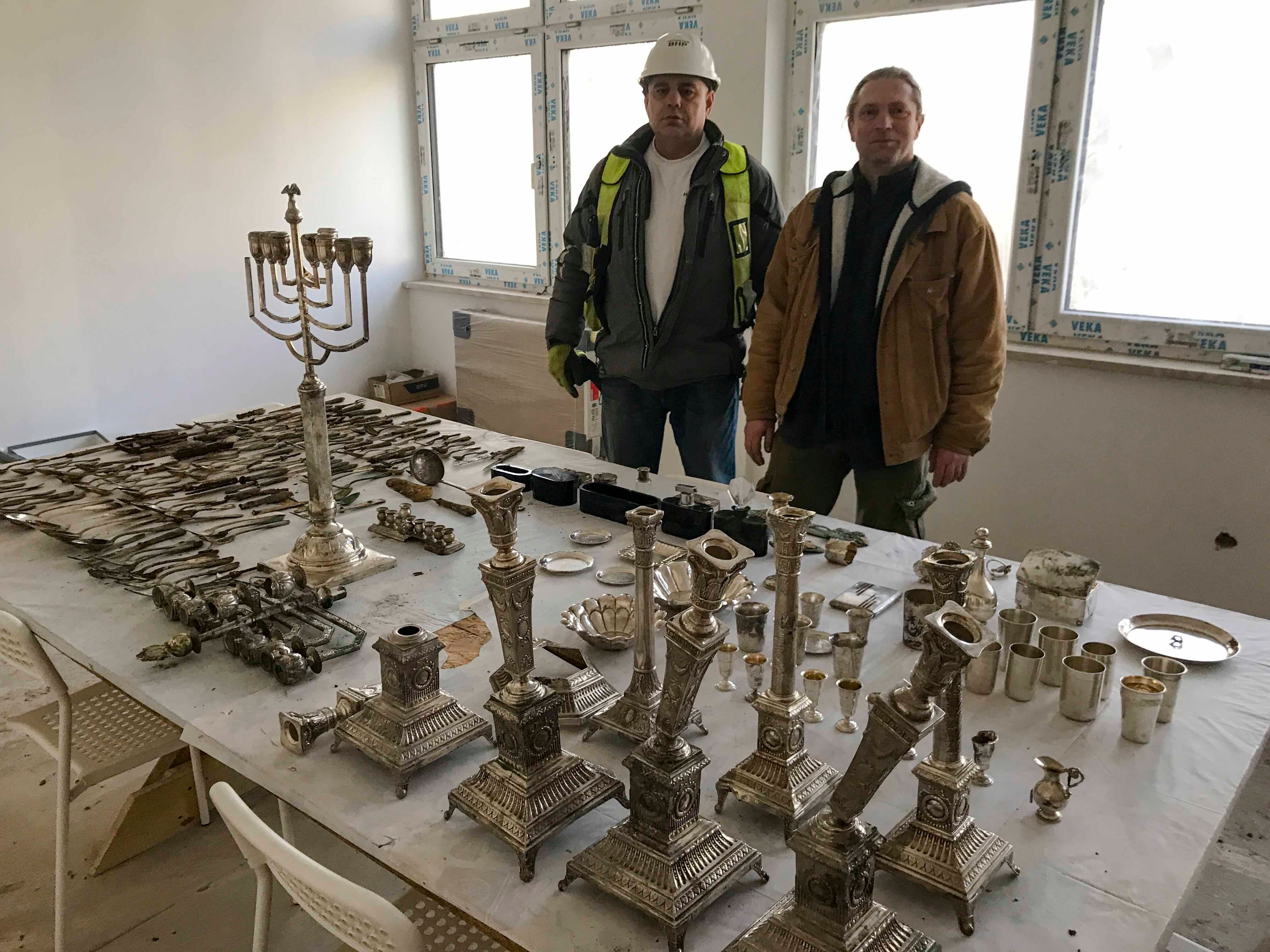Polish officials say WWII trove of Jewish objects rare find
Officials in central Poland say the recent discovery of objects that were most likely hidden by their Jewish owners during World War II has provided a rare and precious find

Your support helps us to tell the story
From reproductive rights to climate change to Big Tech, The Independent is on the ground when the story is developing. Whether it's investigating the financials of Elon Musk's pro-Trump PAC or producing our latest documentary, 'The A Word', which shines a light on the American women fighting for reproductive rights, we know how important it is to parse out the facts from the messaging.
At such a critical moment in US history, we need reporters on the ground. Your donation allows us to keep sending journalists to speak to both sides of the story.
The Independent is trusted by Americans across the entire political spectrum. And unlike many other quality news outlets, we choose not to lock Americans out of our reporting and analysis with paywalls. We believe quality journalism should be available to everyone, paid for by those who can afford it.
Your support makes all the difference.The discovery in central Poland of hundreds of objects that were most likely hidden by their Jewish owners during World War II provided a rare and precious find, officials said Wednesday.
Around 400 items, including silver-plated menorahs, hanukkiahs, tableware and daily use items were uncovered in the city of Lodz last month during the renovation of a house and yard.
“Those residents who buried these items did so most likely thinking that they would one day return for them, that they would be able to retrieve them," Lodz Deputy Mayor Adam Pustelnik said.
“Most likely, these people lost their lives” in the Holocaust, Pustelnik said. “Such stories are truly rare and precious and also are a great lesson for us all.”
The items were packed in a wooden box and wrapped up in newspapers, said Krzysztof Hejmanowski, a building inspector with the Warbud construction company, whose crew came across the stashed trove.
Officials said the recovered objects will be transferred to the city’s Archaeology Museum. Experts think the box was hidden early on in the war.
The address where the objects were found, at 23 Polnocna Street, was located just outside the perimeter of the Litzmannstadt Ghetto. The occupying Nazi Germans established the Jewish quarter in Lodz in February 1940, and until August 1944 and it held about 200,000 Jews from across Europe. Most died there or in concentration camps.
A Municipal Investment Administration official, Małgorzata Loeffler, said the items and their history stir “emotion and deep thought about the fact that we are not alone, that we leave something behind.”